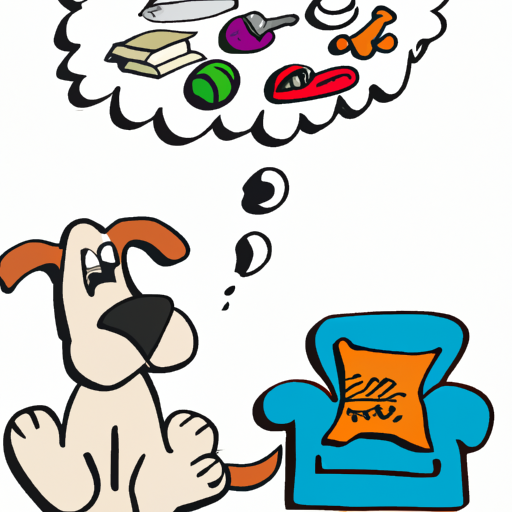Dogs are our loyal companions, but sometimes, their fierce loyalty to us can lead them into behaviors that we would rather they didn’t indulge in. One such behavior is chewing on everything. This guide will help you understand why your dog chews, and provide actionable steps to curb this behavior.
Understand Why Dogs Chew
First, it’s essential to understand that chewing is a natural behavior for dogs. Puppies chew when they’re teething, while older dogs chew to keep their jaws strong and teeth clean. Sometimes, dogs chew out of boredom, anxiety, or curiosity.
In a table format, here’s a quick look at why dogs chew:
| Age Group | Reasons for Chewing |
|---|---|
| Puppies | Teething, Exploration |
| Adult Dogs | Jaw Strengthening, Boredom, Anxiety |
Provide Appropriate Chew Toys
One of the best strategies to prevent your dog from chewing on everything is to provide them with appropriate chew toys. Dogs need an outlet for their natural chewing behavior, and chew toys can provide that.
Here are a few tips when picking out chew toys:
– Choose toys that are size appropriate.
– Avoid toys with small parts that can be swallowed or choked on.
– Rotate toys regularly to keep your dog’s interest.
Train Your Dog to Stop Chewing
Training your dog is a crucial step in curbing unwanted chewing. Here are some steps to follow:
- Whenever you catch your dog chewing on something they shouldn’t, interrupt the behavior with a loud noise.
- Replace the item they were chewing with an appropriate chew toy.
- Praise your dog when they start chewing on the toy.
- Repeat this process until your dog learns what they can and can’t chew.
Keep Your Dog Occupied
Boredom is a significant factor that can lead to excessive chewing. Keeping your dog mentally and physically stimulated can go a long way in curbing this behavior.
- Regular exercise: Walks, runs, and play sessions can help burn off energy.
- Mental stimulation: Puzzle toys, training sessions, and socialization can keep your dog mentally stimulated.
Seek Professional Help
If your dog’s chewing behavior becomes problematic and all your attempts to curb it have been unsuccessful, it might be time to seek professional help. A professional dog trainer or a veterinary behaviorist can provide additional strategies and guidance.
Frequently Asked Questions
Q: How can I tell if my dog’s chewing is a sign of anxiety?
A: If your dog chews excessively, especially when you’re not around, it could be a sign of separation anxiety.
Q: Are some breeds more prone to chewing than others?
A: While any dog can develop a chewing habit, some breeds like Labradors and Golden Retrievers are known for being “mouthy.”
Q: What should I do if my dog swallows something harmful?
A: If your dog swallows something harmful, contact your vet immediately.
Remember, patience and consistency are key when dealing with a dog’s chewing behavior. It’s a natural behavior that can be managed with the right strategies and interventions.



